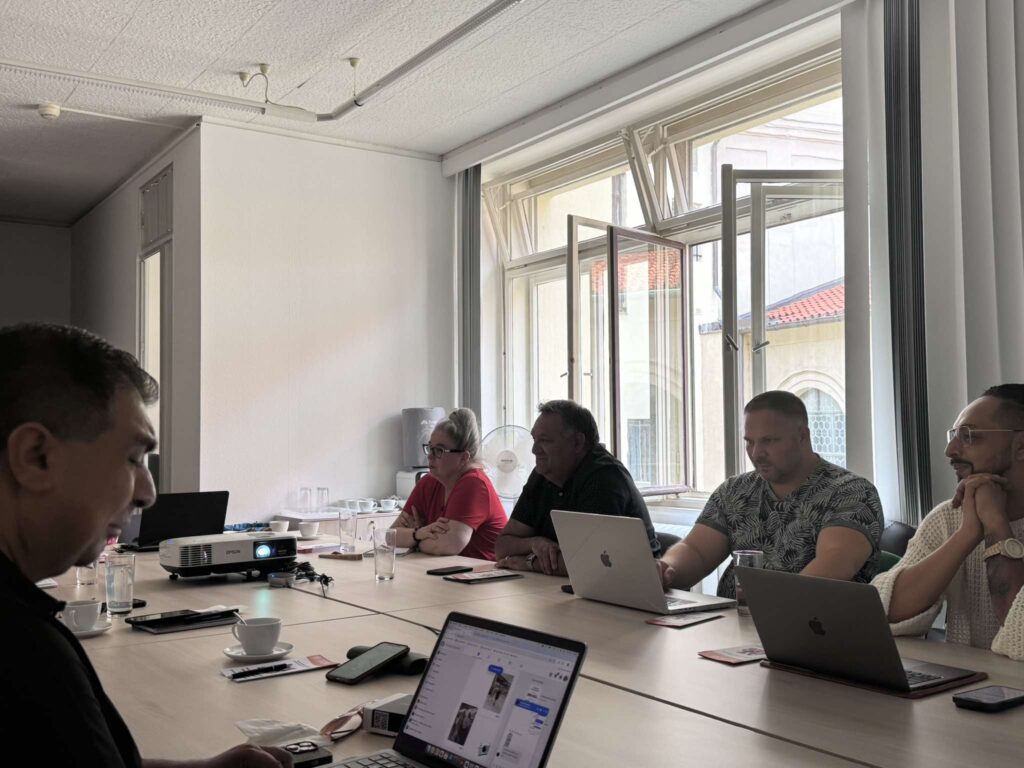Position: Finance Manager
ERGO Network is hiring a new Finance Manager to join its team in Brussels.
ERGO Network
ERGO Network (www.ergonetwork.org) brings together over 30 members from across Europe and supports organisations with a common perspective on Roma grassroots empowerment and equal citizenship to challenge stereotypes and combat stigmatisation. We mobilise and connect organisations and individuals that share and express our values – active citizenship, shared responsibility, and passion- to strengthen Roma civil society’s involvement in decision-making at local, national, and European levels and address existing shortcomings of policies targeted at Roma.
Responsibilities
Financial management :
- Checking incoming invoices for correctness and liaising with Senior Programme Manager for approval and analytical codes.
- Recording and bookkeeping of outgoing and incoming invoices into the system (accountancy software) using analytical departments.
- Arranging payments upon approval of the Director.
- Arranging travel reimbursements for staff and event participants.
- Managing the cashbox.
- Preparing contracts and outgoing invoices based on instructions from the Director and Senior Programme Manager and following up on payment of invoices.
- Quarterly expenditure and income reporting and financial forecasts to Director, Senior Programme Manager and Treasurer of the Board.
- Preparation of financial documents for presentation to the Board, General Assembly and for the annual report.
- Financial reporting to donors in cooperation with the Senior Programme Manager.
- Contribution to the preparation of the annual budget.
- Timely preparation of audits and liaising with external auditors for project and statutory audits.
- Fulfilling obligations for the Belgian VAT and tax administration.
- Liaising with the bank (KBC Brussels).
Human resources:
- Liaising with the Belgian payroll company (Partena), including sending monthly staff presence report to the payroll company.
- Preparing employment contracts in correspondence with Belgian law.
- Be the first contact point for staff for obligations/rights regarding Belgian labour law and introduce new staff members to relevant Belgian rules and regulations.
- Preparing Dimona identification “fiches” for new members of the staff.
- Liaising with the company responsible for medical checks (Mensura).
- Liaising with the insurance companies.
- Order luncheon vouchers on a monthly basis according to presence.
- Arrange for work permits when needed by staff from outside the EU.
Profile
Essential:
- Experience in bookkeeping, accounting and budget management
- Experience in financial planning and analysis
- Experience in Belgian payroll management
- Excellent knowledge of Belgian regulations related to financial and human resources management
- Excellent command of English and French
- Ability to work independently and at the same time coordinate regularly with the ERGO team and member organisations
- Good eye for and attention to detail
Desirable:
- Experience working in the NGO sector
- Experience with EU grants
- Experience working in a multicultural environment
- Understanding of racism
Conditions:
- Undetermined contract on 80% basis (4 days a week or 5 days with 6 hours per day)
- Work location: Brussels (at least 2 days a week presence in the office)
- Starting date: As soon as possible
We offer:
- Salary between 3800 and 4500 € per month based on experience
- 13th-month salary
- Holiday allowance
- Luncheon vouchers (8€ per working day)
- Transport allowance (49€ per month)
- Telework allowance (129€)
- DKV hospitalisation insurance
- Additional 7 days of holidays per year
- An organisation committed to values of democracy, fairness, integrity and sustainability.
- A friendly and respectful work environment.
Application procedure
Interested and qualified candidates should submit the application form to admin@ergonetwork.org by 4 May 2025, 23:59 CET, indicating in the subject of the email “Application Finance Manager”. This email address can also be used for further information and questions. It is not necessary to submit a CV or motivation letter in addition to the application form.
Successful candidates will be invited for interviews in the week of 12 May 2025. Interviews can be taken in person or online. We are not able to reimburse travel costs to attend the interview.
ERGO is an equal opportunities employer. We respect our employees’ private lives, including where they take care roles. We strive to be an inclusive organisation and encourage applications from a diverse range of candidates.












